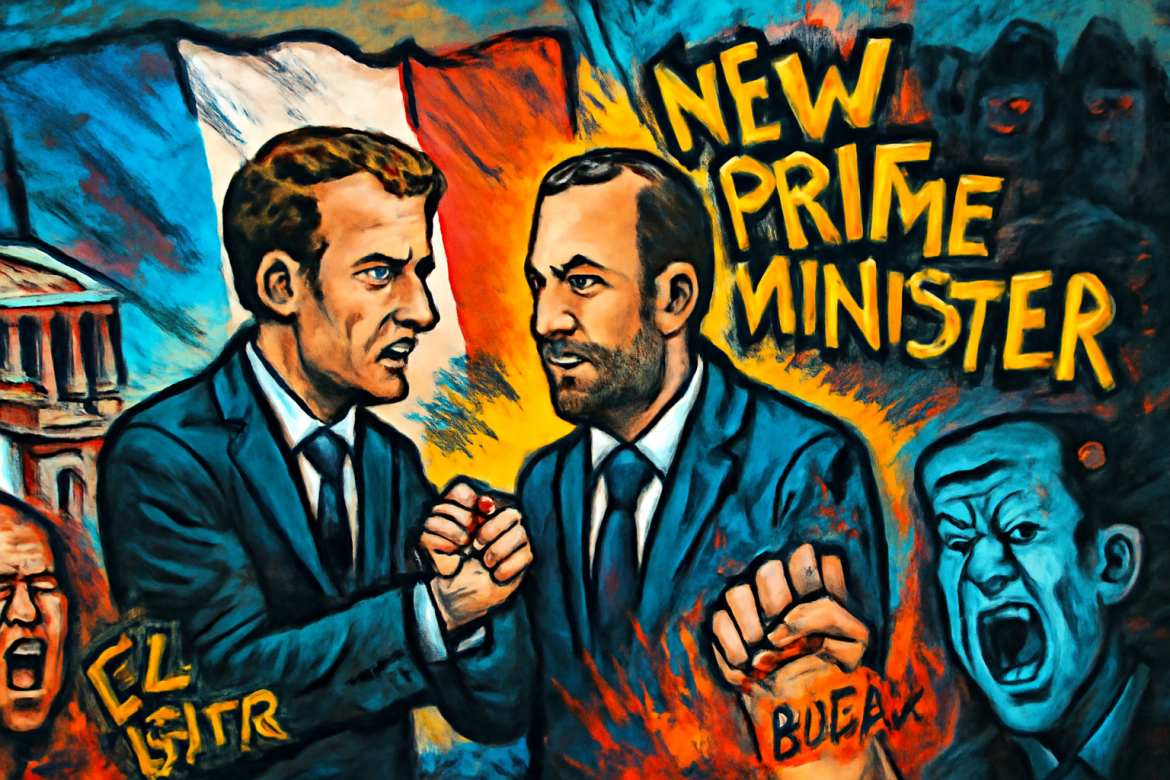French President Emmanuel Macron has appointed Defense Minister Sebastien Lecornu as the country’s new prime minister, making him the fifth person to hold the role in just two years.
Lecornu, 39, has been a close ally of Macron and the only minister to serve continuously in government since the president’s election in 2017.
He succeeds Francois Bayrou, who was ousted after failing to secure support for his budget reforms.
Lecornu’s appointment comes as Macron faces the daunting task of navigating a divided parliament and passing a 2026 budget.
The French leader has tasked his new premier with consulting lawmakers across the political spectrum to form a government capable of adopting fiscal plans.
Budget challenges and political resistance
France’s 2026 budget will be the first major test for Lecornu, who must avoid the missteps that cost his predecessors their positions.
Bayrou’s plan to reduce the deficit to 4.6% of economic output by 2026—down from an expected 5.4% this year—was met with strong opposition and ultimately led to his ouster.
The new prime minister must secure either support or tacit approval from rival parties, an effort complicated by deep divisions in parliament.
Macron’s centrist bloc faces strong resistance from both the far right and left, who have shown little willingness to compromise.
Gesine Weber, a Paris-based analyst at the German Marshall Fund, noted that “regardless of who’s appointed, it is going to be extremely complicated,” pointing to last year’s struggles when rival parties blocked similar reforms.
National Rally leader Jordan Bardella quickly dismissed Lecornu’s appointment, accusing Macron of recycling old policies.
“How can someone loyal to the president break with his policies of the last eight years?” Bardella asked, signaling the resistance Lecornu is likely to face.
Economic outlook and market impact
Despite political turbulence, France’s economy has displayed resilience.
Recent data shows manufacturing recovering from a prolonged slump and second-quarter growth exceeding expectations.
However, uncertainty has surged among business leaders, with a Bank of France survey indicating confidence levels comparable to those seen when Macron dissolved parliament last year.
The political crisis has weighed on French markets.
The CAC 40 Index has fallen 3.2% over the past year, underperforming the Stoxx Europe 600 Index, which gained 5.5%, and Germany’s DAX Index, which rose 25% excluding dividends.
Companies at the heart of the CAC 40, such as LVMH, Airbus, and L’Oréal, remain under pressure as investors monitor developments.
Lecornu’s background as defense minister and his ties with far-right figures, including Marine Le Pen, may provide him with some leverage in negotiations.
His record of supporting military expansion and Macron’s stance on Ukraine could also shape his broader political strategy.
Still, opposition leaders have made clear that any government continuing Macron’s policies will face immediate challenges.
The coming weeks will determine whether Lecornu can stabilize France’s fractured political environment and secure a budget that balances fiscal responsibility with political feasibility.
Failure to do so risks renewed calls for snap elections, prolonging uncertainty for Europe’s second-largest economy.
The post Macron appoints Sebastien Lecornu as new French Prime Minister amid budget standoff appeared first on Invezz

